afterLoad (456.3KB) (3.15ms)
afterInitialise (1.27MB) (24.93ms)
afterRoute (827.66KB) (8.47ms)
beforeRenderComponent com_content (35.99KB) (333μs)
Before Access::preloadComponents (all components) (194.55KB) (2.32ms)
After Access::preloadComponents (all components) (98.07KB) (1.13ms)
Before Access::preloadPermissions (com_content) (1.6KB) (19μs)
After Access::preloadPermissions (com_content) (3.28MB) (10.99ms)
Before Access::getAssetRules (id:62 name:com_content.category.20) (130.65KB) (112μs)
After Access::getAssetRules (id:62 name:com_content.category.20) (7.38KB) (61μs)
Before Access::getAssetRules (id:8 name:com_content) (69.13KB) (23.58ms)
After Access::getAssetRules (id:8 name:com_content) (6.17KB) (24μs)
afterRenderComponent com_content (1.47MB) (122ms)
afterDispatch (41.29KB) (3.09ms)
beforeRenderRawModule mod_articles_category (READ MORE...) (398.66KB) (8.3ms)
afterRenderRawModule mod_articles_category (READ MORE...) (86.17KB) (72.49ms)
beforeRenderRawModule mod_custom (BOOST YOUR IMMUNE DEFENSE) (6.45KB) (26μs)
afterRenderRawModule mod_custom (BOOST YOUR IMMUNE DEFENSE) (4.42KB) (172μs)
beforeRenderRawModule mod_articles_latest (Latest news) (976B) (15μs)
afterRenderRawModule mod_articles_latest (Latest news) (76.93KB) (59.28ms)
beforeRenderRawModule mod_tags_popular (Search) (2.09KB) (25μs)
afterRenderRawModule mod_tags_popular (Search) (22.98KB) (46.96ms)
beforeRenderRawModule mod_custom (the Vitamin and Mineral Guide) (960B) (25μs)
afterRenderRawModule mod_custom (the Vitamin and Mineral Guide) (1.02KB) (43μs)
beforeRenderRawModule mod_custom (Weight loss that works) (736B) (11μs)
afterRenderRawModule mod_custom (Weight loss that works) (928B) (22μs)
beforeRenderRawModule mod_custom (Get additionel and more detailed knowledge ) (752B) (10μs)
afterRenderRawModule mod_custom (Get additionel and more detailed knowledge ) (944B) (18μs)
beforeRenderRawModule mod_custom (Q10 goes by many names) (736B) (9μs)
afterRenderRawModule mod_custom (Q10 goes by many names) (928B) (18μs)
beforeRenderRawModule mod_custom (Check this before you buy a Q10 product) (752B) (9μs)
afterRenderRawModule mod_custom (Check this before you buy a Q10 product) (944B) (18μs)
beforeRenderRawModule mod_custom (Are you taking supplements) (736B) (8μs)
afterRenderRawModule mod_custom (Are you taking supplements) (2.28KB) (18μs)
beforeRenderRawModule mod_custom (Antiaging) (720B) (8μs)
afterRenderRawModule mod_custom (Antiaging) (912B) (17μs)
beforeRenderRawModule mod_custom (Exercise) (720B) (8μs)
afterRenderRawModule mod_custom (Exercise) (912B) (17μs)
beforeRenderRawModule mod_custom (Useful Links) (720B) (9μs)
afterRenderRawModule mod_custom (Useful Links) (1.02KB) (17μs)
beforeRenderModule mod_articles_category (READ MORE...) (332.2KB) (2.21ms)
afterRenderModule mod_articles_category (READ MORE...) (1.25KB) (62μs)
beforeRenderModule mod_custom (BOOST YOUR IMMUNE DEFENSE) (6.81KB) (23μs)
afterRenderModule mod_custom (BOOST YOUR IMMUNE DEFENSE) (1.28KB) (28μs)
beforeRenderModule mod_articles_latest (Latest news) (592B) (11μs)
afterRenderModule mod_articles_latest (Latest news) (1.27KB) (21μs)
beforeRenderModule mod_tags_popular (Search) (1.73KB) (11μs)
afterRenderModule mod_tags_popular (Search) (1.27KB) (21μs)
beforeRenderModule mod_custom (the Vitamin and Mineral Guide) (1.31KB) (9μs)
afterRenderModule mod_custom (the Vitamin and Mineral Guide) (1.28KB) (19μs)
beforeRenderModule mod_custom (Weight loss that works) (336B) (9μs)
afterRenderModule mod_custom (Weight loss that works) (1.27KB) (19μs)
beforeRenderModule mod_custom (Get additionel and more detailed knowledge ) (368B) (9μs)
afterRenderModule mod_custom (Get additionel and more detailed knowledge ) (1.3KB) (20μs)
beforeRenderModule mod_custom (Q10 goes by many names) (336B) (9μs)
afterRenderModule mod_custom (Q10 goes by many names) (1.27KB) (19μs)
beforeRenderModule mod_custom (Check this before you buy a Q10 product) (352B) (8μs)
afterRenderModule mod_custom (Check this before you buy a Q10 product) (1.28KB) (19μs)
beforeRenderModule mod_custom (Are you taking supplements) (352B) (8μs)
afterRenderModule mod_custom (Are you taking supplements) (1.28KB) (20μs)
beforeRenderModule mod_custom (Antiaging) (336B) (8μs)
afterRenderModule mod_custom (Antiaging) (1.27KB) (19μs)
beforeRenderModule mod_custom (Exercise) (336B) (8μs)
afterRenderModule mod_custom (Exercise) (1.25KB) (19μs)
beforeRenderModule mod_custom (Useful Links) (336B) (8μs)
afterRenderModule mod_custom (Useful Links) (3.77KB) (20μs)
beforeRenderRawModule mod_menu (Main Menu - English) (37.51KB) (728μs)
afterRenderRawModule mod_menu (Main Menu - English) (190.16KB) (1.56ms)
beforeRenderModule mod_menu (Main Menu - English) (720B) (5μs)
afterRenderModule mod_menu (Main Menu - English) (4.86KB) (57μs)
beforeRenderRawModule mod_languages (Sprogskift) (3.94KB) (19μs)
afterRenderRawModule mod_languages (Sprogskift) (21.65KB) (1.55ms)
beforeRenderModule mod_languages (Sprogskift) (720B) (6μs)
afterRenderModule mod_languages (Sprogskift) (5.31KB) (20μs)
beforeRenderRawModule mod_finder () (6.34KB) (11μs)
afterRenderRawModule mod_finder () (68.96KB) (1.59ms)
beforeRenderModule mod_finder () (704B) (5μs)
afterRenderModule mod_finder () (3.29KB) (33μs)
beforeRenderRawModule mod_custom () (6.62KB) (153μs)
afterRenderRawModule mod_custom () (26.52KB) (804μs)
beforeRenderModule mod_custom () (704B) (5μs)
afterRenderModule mod_custom () (1.23KB) (49μs)
beforeRenderRawModule mod_menu (Main Menu - English) (5.07KB) (112μs)
afterRenderRawModule mod_menu (Main Menu - English) (6.3KB) (754μs)
beforeRenderModule mod_menu (Main Menu - English) (720B) (4μs)
afterRenderModule mod_menu (Main Menu - English) (1.25KB) (43μs)
beforeRenderRawModule mod_languages (Sprogskift Mobil) (912B) (17μs)
afterRenderRawModule mod_languages (Sprogskift Mobil) (3.89KB) (675μs)
beforeRenderModule mod_languages (Sprogskift Mobil) (720B) (4μs)
afterRenderModule mod_languages (Sprogskift Mobil) (1.27KB) (29μs)
beforeRenderRawModule mod_finder () (2.3KB) (9μs)
afterRenderRawModule mod_finder () (6.29KB) (521μs)
beforeRenderModule mod_finder () (704B) (4μs)
afterRenderModule mod_finder () (1.23KB) (43μs)
beforeRenderRawModule mod_custom () (8.66KB) (227μs)
afterRenderRawModule mod_custom () (904B) (133μs)
beforeRenderModule mod_custom () (704B) (3μs)
afterRenderModule mod_custom () (2.43KB) (24μs)
beforeRenderRawModule mod_custom () (688B) (82μs)
afterRenderRawModule mod_custom () (896B) (99μs)
beforeRenderModule mod_custom () (704B) (3μs)
afterRenderModule mod_custom () (2.71KB) (23μs)
afterRender (291.57KB) (5.79ms)
| 1 x afterRenderComponent com_content (1.47MB) (30.05%) | 122.22ms |
| 1 x afterRenderRawModule mod_articles_category (READ MORE...) (86.17KB) (17.82%) | 72.49ms |
| 1 x afterRenderRawModule mod_articles_latest (Latest news) (76.93KB) (14.58%) | 59.28ms |
| 1 x afterRenderRawModule mod_tags_popular (Search) (22.98KB) (11.55%) | 46.96ms |
| 1 x afterInitialise (1.27MB) (6.13%) | 24.93ms |
| 1 x Before Access::getAssetRules (id:8 name:com_content) (69.13KB) (5.8%) | 23.58ms |
| 1 x After Access::preloadPermissions (com_content) (3.28MB) (2.7%) | 10.99ms |
| 1 x afterRoute (827.66KB) (2.08%) | 8.47ms |
| 1 x beforeRenderRawModule mod_articles_category (READ MORE...) (398.66KB) (2.04%) | 8.30ms |
| 1 x afterRender (291.57KB) (1.42%) | 5.79ms |
| 1 x afterLoad (456.3KB) (0.78%) | 3.15ms |
| 1 x afterDispatch (41.29KB) (0.76%) | 3.09ms |
| 1 x Before Access::preloadComponents (all components) (194.55KB) (0.57%) | 2.32ms |
| 1 x beforeRenderModule mod_articles_category (READ MORE...) (332.2KB) (0.54%) | 2.21ms |
| 1 x afterRenderRawModule mod_finder () (68.96KB) (0.39%) | 1.59ms |
| 1 x afterRenderRawModule mod_menu (Main Menu - English) (190.16KB) (0.38%) | 1.56ms |
| 1 x afterRenderRawModule mod_languages (Sprogskift) (21.65KB) (0.38%) | 1.55ms |
| 1 x After Access::preloadComponents (all components) (98.07KB) (0.28%) | 1.13ms |
| 1 x afterRenderRawModule mod_custom () (26.52KB) (0.2%) | 804μs |
| 1 x afterRenderRawModule mod_menu (Main Menu - English) (6.3KB) (0.19%) | 754μs |
| 1 x beforeRenderRawModule mod_menu (Main Menu - English) (37.51KB) (0.18%) | 728μs |
| 1 x afterRenderRawModule mod_languages (Sprogskift Mobil) (3.89KB) (0.17%) | 675μs |
| 1 x afterRenderRawModule mod_finder () (6.29KB) (0.13%) | 521μs |
| 1 x beforeRenderComponent com_content (35.99KB) (0.08%) | 333μs |
| 1 x beforeRenderRawModule mod_custom () (8.66KB) (0.06%) | 227μs |
| 1 x afterRenderRawModule mod_custom (BOOST YOUR IMMUNE DEFENSE) (4.42KB) (0.04%) | 172μs |
| 1 x beforeRenderRawModule mod_custom () (6.62KB) (0.04%) | 153μs |
| 1 x afterRenderRawModule mod_custom () (904B) (0.03%) | 133μs |
| 1 x Before Access::getAssetRules (id:62 name:com_content.category.20) (130.65KB) (0.03%) | 112μs |
| 1 x beforeRenderRawModule mod_menu (Main Menu - English) (5.07KB) (0.03%) | 112μs |
| 1 x afterRenderRawModule mod_custom () (896B) (0.02%) | 99μs |
| 1 x beforeRenderRawModule mod_custom () (688B) (0.02%) | 82μs |
| 1 x afterRenderModule mod_articles_category (READ MORE...) (1.25KB) (0.02%) | 62μs |
| 1 x After Access::getAssetRules (id:62 name:com_content.category.20) (7.38KB) (0.02%) | 61μs |
| 1 x afterRenderModule mod_menu (Main Menu - English) (4.86KB) (0.01%) | 57μs |
| 1 x afterRenderModule mod_custom () (1.23KB) (0.01%) | 49μs |
| 1 x afterRenderRawModule mod_custom (the Vitamin and Mineral Guide) (1.02KB) (0.01%) | 43μs |
| 1 x afterRenderModule mod_menu (Main Menu - English) (1.25KB) (0.01%) | 43μs |
| 1 x afterRenderModule mod_finder () (1.23KB) (0.01%) | 43μs |
| 1 x afterRenderModule mod_finder () (3.29KB) (0.01%) | 33μs |
| 1 x afterRenderModule mod_languages (Sprogskift Mobil) (1.27KB) (0.01%) | 29μs |
| 1 x afterRenderModule mod_custom (BOOST YOUR IMMUNE DEFENSE) (1.28KB) (0.01%) | 28μs |
| 1 x beforeRenderRawModule mod_custom (BOOST YOUR IMMUNE DEFENSE) (6.45KB) (0.01%) | 26μs |
| 1 x beforeRenderRawModule mod_custom (the Vitamin and Mineral Guide) (960B) (0.01%) | 25μs |
| 1 x beforeRenderRawModule mod_tags_popular (Search) (2.09KB) (0.01%) | 25μs |
| 1 x After Access::getAssetRules (id:8 name:com_content) (6.17KB) (0.01%) | 24μs |
| 1 x afterRenderModule mod_custom () (2.43KB) (0.01%) | 24μs |
| 1 x beforeRenderModule mod_custom (BOOST YOUR IMMUNE DEFENSE) (6.81KB) (0.01%) | 23μs |
| 1 x afterRenderModule mod_custom () (2.71KB) (0.01%) | 23μs |
| 1 x afterRenderRawModule mod_custom (Weight loss that works) (928B) (0.01%) | 22μs |
| 1 x afterRenderModule mod_articles_latest (Latest news) (1.27KB) (0.01%) | 21μs |
| 1 x afterRenderModule mod_tags_popular (Search) (1.27KB) (0.01%) | 21μs |
| 1 x afterRenderModule mod_custom (Get additionel and more detailed knowledge ) (1.3KB) (0%) | 20μs |
| 1 x afterRenderModule mod_custom (Are you taking supplements) (1.28KB) (0%) | 20μs |
| 1 x afterRenderModule mod_custom (Useful Links) (3.77KB) (0%) | 20μs |
| 1 x afterRenderModule mod_languages (Sprogskift) (5.31KB) (0%) | 20μs |
| 1 x Before Access::preloadPermissions (com_content) (1.6KB) (0%) | 19μs |
| 1 x afterRenderModule mod_custom (the Vitamin and Mineral Guide) (1.28KB) (0%) | 19μs |
| 1 x afterRenderModule mod_custom (Check this before you buy a Q10 product) (1.28KB) (0%) | 19μs |
| 1 x afterRenderModule mod_custom (Exercise) (1.25KB) (0%) | 19μs |
| 1 x afterRenderModule mod_custom (Weight loss that works) (1.27KB) (0%) | 19μs |
| 1 x afterRenderModule mod_custom (Q10 goes by many names) (1.27KB) (0%) | 19μs |
| 1 x afterRenderModule mod_custom (Antiaging) (1.27KB) (0%) | 19μs |
| 1 x beforeRenderRawModule mod_languages (Sprogskift) (3.94KB) (0%) | 19μs |
| 1 x afterRenderRawModule mod_custom (Q10 goes by many names) (928B) (0%) | 18μs |
| 1 x afterRenderRawModule mod_custom (Check this before you buy a Q10 product) (944B) (0%) | 18μs |
| 1 x afterRenderRawModule mod_custom (Are you taking supplements) (2.28KB) (0%) | 18μs |
| 1 x afterRenderRawModule mod_custom (Get additionel and more detailed knowledge ) (944B) (0%) | 18μs |
| 1 x afterRenderRawModule mod_custom (Antiaging) (912B) (0%) | 17μs |
| 1 x afterRenderRawModule mod_custom (Exercise) (912B) (0%) | 17μs |
| 1 x afterRenderRawModule mod_custom (Useful Links) (1.02KB) (0%) | 17μs |
| 1 x beforeRenderRawModule mod_languages (Sprogskift Mobil) (912B) (0%) | 17μs |
| 1 x beforeRenderRawModule mod_articles_latest (Latest news) (976B) (0%) | 15μs |
| 1 x beforeRenderRawModule mod_custom (Weight loss that works) (736B) (0%) | 11μs |
| 1 x beforeRenderModule mod_articles_latest (Latest news) (592B) (0%) | 11μs |
| 1 x beforeRenderModule mod_tags_popular (Search) (1.73KB) (0%) | 11μs |
| 1 x beforeRenderRawModule mod_finder () (6.34KB) (0%) | 11μs |
| 3 x beforeRenderModule mod_custom () (704B) (0%) | 11μs |
| 1 x beforeRenderRawModule mod_custom (Get additionel and more detailed knowledge ) (752B) (0%) | 10μs |
| 1 x beforeRenderRawModule mod_custom (Q10 goes by many names) (736B) (0%) | 9μs |
| 1 x beforeRenderModule mod_custom (the Vitamin and Mineral Guide) (1.31KB) (0%) | 9μs |
| 1 x beforeRenderModule mod_custom (Weight loss that works) (336B) (0%) | 9μs |
| 1 x beforeRenderModule mod_custom (Get additionel and more detailed knowledge ) (368B) (0%) | 9μs |
| 1 x beforeRenderModule mod_custom (Q10 goes by many names) (336B) (0%) | 9μs |
| 2 x beforeRenderModule mod_menu (Main Menu - English) (720B) (0%) | 9μs |
| 2 x beforeRenderModule mod_finder () (704B) (0%) | 9μs |
| 1 x beforeRenderRawModule mod_finder () (2.3KB) (0%) | 9μs |
| 1 x beforeRenderRawModule mod_custom (Check this before you buy a Q10 product) (752B) (0%) | 9μs |
| 1 x beforeRenderRawModule mod_custom (Useful Links) (720B) (0%) | 9μs |
| 1 x beforeRenderModule mod_custom (Check this before you buy a Q10 product) (352B) (0%) | 8μs |
| 1 x beforeRenderModule mod_custom (Antiaging) (336B) (0%) | 8μs |
| 1 x beforeRenderModule mod_custom (Exercise) (336B) (0%) | 8μs |
| 1 x beforeRenderRawModule mod_custom (Are you taking supplements) (736B) (0%) | 8μs |
| 1 x beforeRenderRawModule mod_custom (Antiaging) (720B) (0%) | 8μs |
| 1 x beforeRenderRawModule mod_custom (Exercise) (720B) (0%) | 8μs |
| 1 x beforeRenderModule mod_custom (Are you taking supplements) (352B) (0%) | 8μs |
| 1 x beforeRenderModule mod_custom (Useful Links) (336B) (0%) | 8μs |
| 1 x beforeRenderModule mod_languages (Sprogskift) (720B) (0%) | 6μs |
| 1 x beforeRenderModule mod_languages (Sprogskift Mobil) (720B) (0%) | 4μs |
 Vitamin D is important for multiple metabolic processes. However, overweight individuals have difficulty with activating the form of vitamin D that we get from supplements, and that impairs their utilization of the nutrient. Therefore, vitamin D supplements work differently on those who take them to prevent diseases like cancer, diabetes, and autoimmune diseases, according to a large American study called VITAL. A group of scientists looked closer at the study and found that overweight people may have an increased need for vitamin D.
Vitamin D is important for multiple metabolic processes. However, overweight individuals have difficulty with activating the form of vitamin D that we get from supplements, and that impairs their utilization of the nutrient. Therefore, vitamin D supplements work differently on those who take them to prevent diseases like cancer, diabetes, and autoimmune diseases, according to a large American study called VITAL. A group of scientists looked closer at the study and found that overweight people may have an increased need for vitamin D.







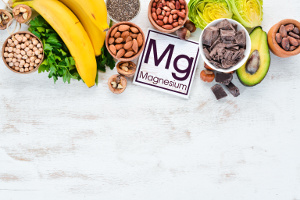 Stable blood sugar levels are essential for our health, our energy levels, and our mood. However, millions of people across the globe suffer from insulin resistance and have impaired glucose uptake in their cells. Insulin resistance also occurs in people with type 2 diabetes. In a review article that is published in Advanced Biomedical Research, the authors look closer at magnesium’s role in connection with insulin resistance, blood sugar levels, and energy turnover. They conclude that
Stable blood sugar levels are essential for our health, our energy levels, and our mood. However, millions of people across the globe suffer from insulin resistance and have impaired glucose uptake in their cells. Insulin resistance also occurs in people with type 2 diabetes. In a review article that is published in Advanced Biomedical Research, the authors look closer at magnesium’s role in connection with insulin resistance, blood sugar levels, and energy turnover. They conclude that 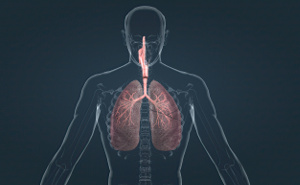 COPD, a lung disease that is primarily a result of smoking, is one of the leading causes of death. Asthma, however, may also become life-threatening if it is left untreated. According to a meta-analysis published in Journal of Global Health,
COPD, a lung disease that is primarily a result of smoking, is one of the leading causes of death. Asthma, however, may also become life-threatening if it is left untreated. According to a meta-analysis published in Journal of Global Health, 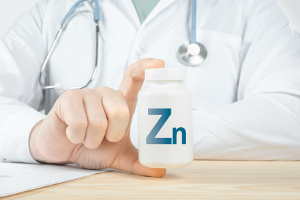 Over the past decades, it has been common practice to use
Over the past decades, it has been common practice to use 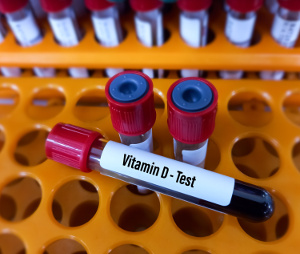 Considerably fewer cases of melanoma are found among people who take
Considerably fewer cases of melanoma are found among people who take 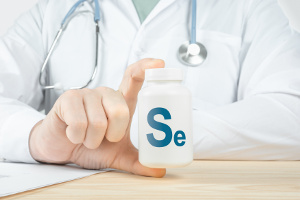 The brain is particularly vulnerable towards oxidative stress and local inflammation that can set the stage for Alzheimer’s disease and other neurological conditions. However, it turns out that certain selenium-containing antioxidants are able to protect the brain neurons against damage. Also, selenium supplements can improve cognitive performance in patients suffering from mild cognitive impairment and Alzheimer’s disease, according to a meta-analysis that is published in Nutrients.
The brain is particularly vulnerable towards oxidative stress and local inflammation that can set the stage for Alzheimer’s disease and other neurological conditions. However, it turns out that certain selenium-containing antioxidants are able to protect the brain neurons against damage. Also, selenium supplements can improve cognitive performance in patients suffering from mild cognitive impairment and Alzheimer’s disease, according to a meta-analysis that is published in Nutrients.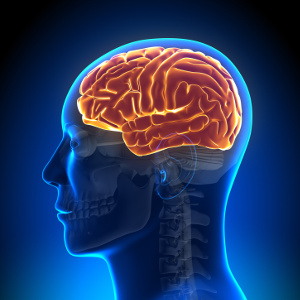 Alzheimer’s is a growing health burden worldwide, and diet appears to play a major role. A large meta-analysis published in Frontiers in Aging Neuroscience recently revealed that patients with Alzheimer’s disease have lower levels of
Alzheimer’s is a growing health burden worldwide, and diet appears to play a major role. A large meta-analysis published in Frontiers in Aging Neuroscience recently revealed that patients with Alzheimer’s disease have lower levels of  Depression is often caused by brain inflammation, and it looks as if high-dosed supplementation with EPA, a type of
Depression is often caused by brain inflammation, and it looks as if high-dosed supplementation with EPA, a type of  Bone fractures can be fatal, especially in old age where hip fractures typically result in hospitalization and early death. According to a study from Edith Cowan University in Australia, increased intake of
Bone fractures can be fatal, especially in old age where hip fractures typically result in hospitalization and early death. According to a study from Edith Cowan University in Australia, increased intake of 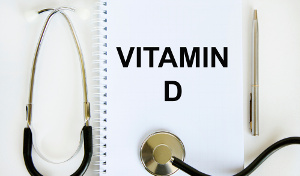 Millions of people worldwide drink arsenic-polluted water regularly. Arsenic is a toxin that is known to cause different types of cancer, including skin cancer. According to a new study published in American Journal of Cancer Research, it looks as if the active form of vitamin D, calcitriol, can prevent the onset of arsenic-induced skin cancer in a special type of skin cells. Calcitriol also appears to be able to prevent other types of cancer caused by arsenic.
Millions of people worldwide drink arsenic-polluted water regularly. Arsenic is a toxin that is known to cause different types of cancer, including skin cancer. According to a new study published in American Journal of Cancer Research, it looks as if the active form of vitamin D, calcitriol, can prevent the onset of arsenic-induced skin cancer in a special type of skin cells. Calcitriol also appears to be able to prevent other types of cancer caused by arsenic.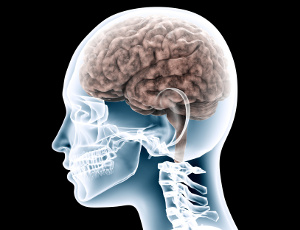 Neuroplasticity refers to the brain ability of brain cells to carry out structural and functional changes that are of vital importance to our development and health. It has been shown that neuroplasticity is impaired in connection with various diseases of the central nervous system, including such conditions as depression and dementia. In a review article that is published in Brain Plasticity, scientists have looked closer at how exercise, the Mediterranean diet, and nutrients like
Neuroplasticity refers to the brain ability of brain cells to carry out structural and functional changes that are of vital importance to our development and health. It has been shown that neuroplasticity is impaired in connection with various diseases of the central nervous system, including such conditions as depression and dementia. In a review article that is published in Brain Plasticity, scientists have looked closer at how exercise, the Mediterranean diet, and nutrients like 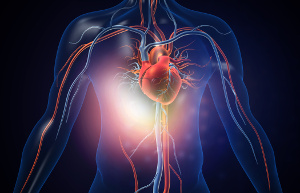 Cardiovascular disease is still the leading cause of death, and both diet and lifestyle are of huge importance. According to a new meta-analysis, fish oil, folic acid, and Q10 are some of nutrients with the greatest potential to lower the risk. It is important to underline that supplements are not likely to make much of a difference if the dosage is too low or if the quality of the preparations is poor.
Cardiovascular disease is still the leading cause of death, and both diet and lifestyle are of huge importance. According to a new meta-analysis, fish oil, folic acid, and Q10 are some of nutrients with the greatest potential to lower the risk. It is important to underline that supplements are not likely to make much of a difference if the dosage is too low or if the quality of the preparations is poor.